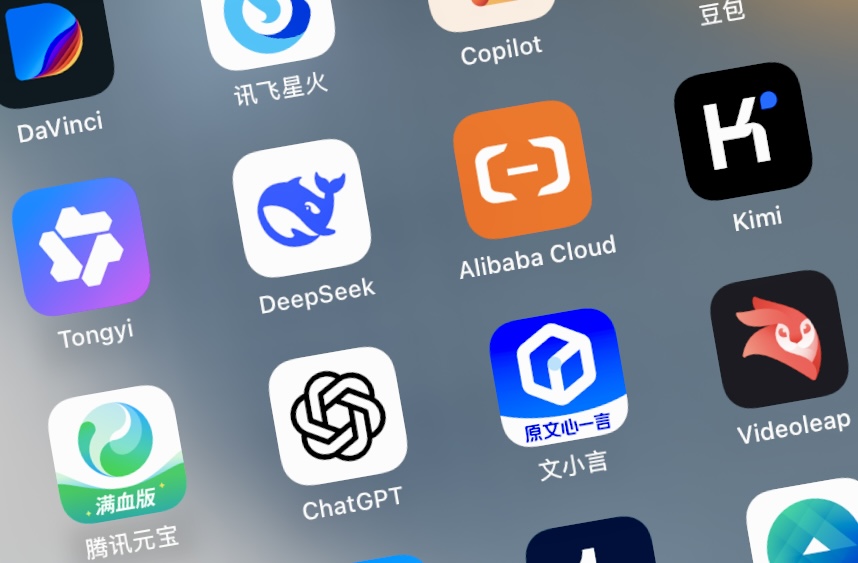If you haven’t heard of DeepSeek yet, you’re about to.
The Chinese AI startup, founded in 2023, has quickly become a major player in artificial intelligence.
With its flagship model, DeepSeek-R1, the company has developed an open-source AI system that competes with the best in the industry, including OpenAI’s GPT-4 and Meta’s LLaMA models.
DeepSeek aims to advance artificial general intelligence (AGI) with cutting-edge research, focusing on efficiency and cost-effectiveness.
It’s a bold vision, and it’s already disrupting the industry in ways few expected.

What Makes DeepSeek Different?
DeepSeek-R1 has turned heads for several reasons...
Performance
DeepSeek-R1 reportedly matches or surpasses OpenAI’s models in math, coding, and reasoning tasks — areas where even the best AI systems struggle.

Cost Efficiency
While training a model like GPT-4 reportedly costs up to USD1 billion, DeepSeek claims it achieved similar performance for just USD5.6 million.
That’s at least 160 times cheaper, a staggering difference that could redefine the AI landscape.

Open Source
Unlike OpenAI’s models, which remain closed-source, DeepSeek has made its code publicly available, allowing researchers and developers worldwide to inspect, use, and improve upon it.
Such were the shockwaves that US stocks dropped sharply the day after DeepSeek-R1's release; chipmaker Nvidia alone lost nearly $600 billion in market value – the greatest single-day market-cap drop for a company in US stock market history.
Threatening the aura of invincibility surrounding America’s technology industry as it does, DeepSeek’s meteoric rise elicited responses from all the big players.
Elon Musk expressed skepticism about DeepSeek’s rapid progress. Calling its results “too good to be true,” Musk questioned whether the model’s performance claims are genuinely achievable or exaggerated for publicity.

Meta, which also champions open-source AI, praised DeepSeek’s model, saying it highlights the power of transparency in AI research. However, insiders at Meta have noted concerns about potential regulatory scrutiny, especially in the West.
OpenAI, often referred to as the AI Model, and possibly DeepSeek's biggest competitor in the game, has remained cautious in its public comments.
While OpenAI acknowledges DeepSeek’s potential, it also warns that cutting AI training costs too aggressively could lead to sacrifices in safety and reliability — an indirect criticism of DeepSeek’s rapid development model.

Real-Time Self-Censorship
During the hands-on test at That's, we ran into instances where DeepSeek-R1 initially generates a response to a sensitive query but then swiftly deletes it, replacing it with a message such as, “Sorry, that’s beyond my current scope. Let’s talk about something else.”
This real-time self-censorship reflects the model’s internal controls set to adhere to Chinese regulatory standards, with the AI model programmed to avoid discussions on several subjects deemed sensitive in China.
For international users, especially those accustomed to open discourse, DeepSeek’s censorship protocols may pose challenges.
The AI’s adherence to Chinese regulatory standards can limit its utility in contexts where unrestricted information exchange is valued.
Moreover, the presence of built-in biases raises concerns about the objectivity and reliability of the information provided.

The Regulatory Backlash
Not everyone is celebrating DeepSeek’s rise — several countries have already imposed restrictions on the model, citing concerns about data security, misinformation, and national security risks.
US officials are evaluating potential restrictions on DeepSeek, with some lawmakers pushing for a ban on its deployment in government agencies due to data privacy concerns.
The Australian government banned DeepSeek from all government systems, citing cybersecurity risks and potential misuse by foreign actors.
Italy’s privacy watchdog ordered DeepSeek to suspend operations in the country, demanding more transparency on how it collects and stores user data.
These responses echo the global pushback against Chinese technology companies in recent years, including bans on Huawei’s 5G networks and TikTok’s restrictions in several countries.

Alibaba Enters the Race
Just as DeepSeek was making headlines, Alibaba Cloud dropped a bombshell of its own.
The company released Qwen 2.5-Max, a model it claims outperforms DeepSeek-V3 and other leading systems in certain tasks.
Alibaba’s move signals that China’s AI race is accelerating, with domestic companies now competing against each other in addition to Western tech giants.

What Next?
DeepSeek’s rise has been swift, controversial, and – that buzzword – disruptive.
Its low-cost, high-performance AI model could change the way AI is developed and deployed globally.

Share your experience with DeepSeek with us. Follow our WeChat official account, ThatsGBA, for the latest developments in China.
[Cover image via That's]





















0 User Comments